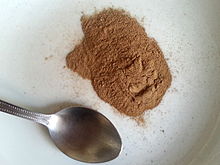Neuroprotection
Bluelighter
- Joined
- Apr 18, 2015
- Messages
- 1,265
Ibogamine is an alkaloid profound in the same plant as that which Ibogaine comes from.
It shares the same anti addictive and tolerance reversing effects with Ibogaine but completely lacks the psychoactive or at least hallucinogenic effects.
However I have only found limited information on this substance and I would like to know more. Since it is a precursor to, and structuraly similar to Ibogaine, I believe more research should have gone into it.
Does anyone know about this compound?
Does anyone see this as being a possible legal replacement for Ibogaine?
Also would anybody consider extracting it from its plant sauce and trying it, I don't usually condone drug use, but I think I can safely say ibogamine is far safer than Ibogaine
What do you all think, I am fascinated by this substance so any contributions will be greatly appreciated
Thanks
It shares the same anti addictive and tolerance reversing effects with Ibogaine but completely lacks the psychoactive or at least hallucinogenic effects.
However I have only found limited information on this substance and I would like to know more. Since it is a precursor to, and structuraly similar to Ibogaine, I believe more research should have gone into it.
Does anyone know about this compound?
Does anyone see this as being a possible legal replacement for Ibogaine?
Also would anybody consider extracting it from its plant sauce and trying it, I don't usually condone drug use, but I think I can safely say ibogamine is far safer than Ibogaine
What do you all think, I am fascinated by this substance so any contributions will be greatly appreciated
Thanks






